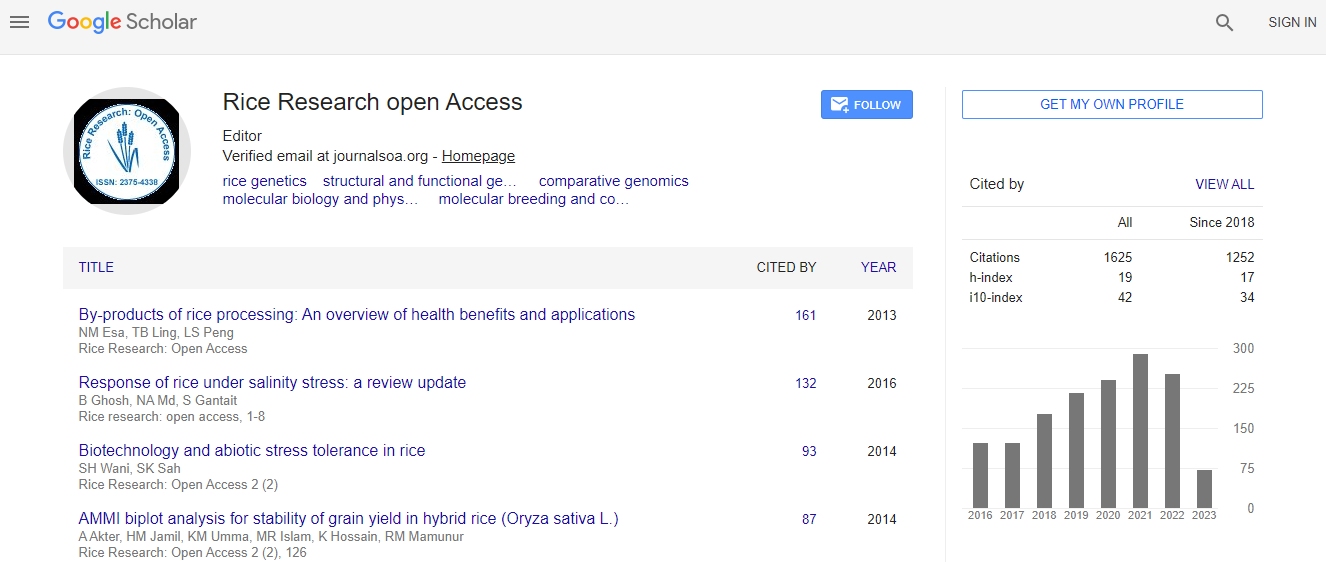The Role of Rice-Based Crop Rotation Systems in Enhancing Soil Fertility and Pest Control
*Corresponding Author:Received Date: Sep 02, 2024 /
Copyright: © 0 . This is an open-access article distributed under the terms of the Creative Commons Attribution License, which permits unrestricted use, distribution, and reproduction in any medium, provided the original author and source are credited.
Abstract
Rice-based cropping systems are common in many Asian and African countries, but the sustainability of these systems is threatened by declining soil fertility and increased pest pressure. This study evaluates the impact of different rice-based crop rotation systems on soil nutrient levels, pest populations, and rice yield. Field experiments were conducted with various crop rotation treatments, including rice-maize, rice-legume, and rice-wheat systems. The results showed that rice-legume rotations significantly enhanced soil fertility, reduced pest populations, and improved rice yields compared to monocropping. The findings support the potential of integrated crop management practices to enhance sustainability in rice farming.

 Spanish
Spanish  Chinese
Chinese  Russian
Russian  German
German  French
French  Japanese
Japanese  Portuguese
Portuguese  Hindi
Hindi 
